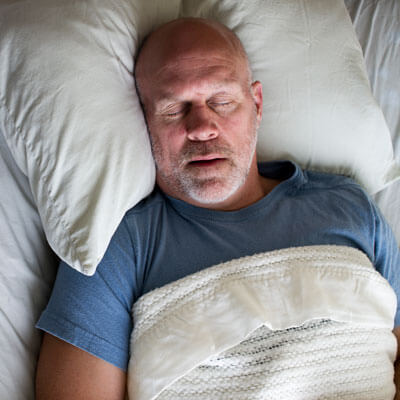Sleep Apnoea
 Unlike snoring, which is a sound caused by vibrations in the airway during slumber, sleep apnoea is a serious disorder characterised by recurrent interruptions in breathing during sleep. These interruptions, known as apnoeas, can be short pauses lasting a few seconds or extend to longer periods, potentially occurring dozens or even hundreds of times throughout the night. This leads to severely disrupted sleep patterns and poor sleep quality.
Unlike snoring, which is a sound caused by vibrations in the airway during slumber, sleep apnoea is a serious disorder characterised by recurrent interruptions in breathing during sleep. These interruptions, known as apnoeas, can be short pauses lasting a few seconds or extend to longer periods, potentially occurring dozens or even hundreds of times throughout the night. This leads to severely disrupted sleep patterns and poor sleep quality.
Recognising the Signs and Symptoms
If you frequently experience restless slumber, wake up multiple times during the night, or are feel constantly tired and lethargic despite seemingly getting enough shut-eye, you might have sleep apnoea.
Another common symptom is a persistent lack of concentration, especially during important tasks like work or driving, which can be not only frustrating but potentially hazardous. Loud snoring, gasping for air during slumber, and morning headaches are also telltale signs of this condition.
Risks of Untreated Sleep Apnoea
Ignoring sleep apnoea can have serious and far-reaching consequences on your health and wellbeing. Untreated, this condition significantly increases your risk of developing cardiovascular problems, including high blood pressure, heart disease, and stroke.
The chronic sleep deprivation associated with sleep apnoea can contribute to a higher mortality rate due to accidents, both at work and on the road. Additionally, the constant lack of energy and mental fog leads to decreased productivity and can strain personal relationships, ultimately affecting your overall quality of life.
Treatment Options
Fortunately, there are several ways to manage sleep apnoea. The most common and often most successful treatment involves using a CPAP (Continuous Positive Airway Pressure) device. This device delivers a steady stream of air pressure through a mask, helping to keep your airway open and maintain steady breathing throughout the night.
If you find CPAP uncomfortable or untolerable, alternative options include mandibular advancement splints, which adjust the position of the jaw to keep the airway open, and lifestyle modifications, such as weight management strategies, that can reduce the severity of symptoms.
Take Action Today
Sleep apnoea doesn’t have to disrupt your life and jeopardise your health. Help is available. Contact Alkimos Beach Dental Centre to schedule a consultation and explore the best treatment options tailored to your specific needs.
Any invasive or surgical procedure may carry risks. Before moving forward, it is recommended that you seek a second opinion from an appropriately licensed medical professional.

